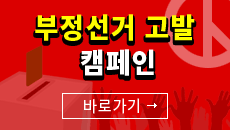 |
 국제사면위원회 북한인권보고서(2001) 국제사면위원회 북한인권보고서(2001) |
|
| 글번호 |
141 |
작성일 |
2007-11-03 |
|
| 글쓴이 |
청지기 |
조회 |
17566 |
|
Covering events from January - December 2000
KOREA
(Democratic People's Republic Of)
Democratic People's Republic of Korea
Head of state: Kim Jong Il
Head of government: Hong Song Nam
Capital: Pyongyang
Population: 23.3 million
Official language: Korean
Death penalty: retentionist
출처: http://www.nkchosun.com/
--------------------------------------------------------------------------------
The government of the Democratic People's Republic of Korea (North Korea) stepped up its diplomatic and trade initiatives with the outside world. Although the food crisis was reported to have eased slightly, North Korea remained dependent on massive humanitarian aid. Lack of access and government restrictions on the flow of information continued to hamper independent research, giving rise to concern that patterns of serious human rights violations remained hidden.
Intensified diplomatic and trade links
The North Korean government's diplomatic efforts were intensified in 2000, as the country became more engaged in regional and international affairs. In January, Italy became the first of the Group of Seven (G7) nations to establish full diplomatic ties with North Korea. Diplomatic links were also established with Australia and with the Philippines. The government showed interest in improving ties with the USA, Japan, Canada and several European countries. In July, North Korea joined the Association of South-East Asian Nations (ASEAN).
North Korea and Japan resumed talks to normalize relations in April. However, the two countries remained far apart on most key issues, including Japanese compensation for its occupation of the Korean peninsula between 1910 and 1945, and the 10 missing Japanese nationals who Japan believes were abducted by North Korean agents in the 1970s and 1980s.
Contacts between North Korea and the USA accelerated. Foreign Ministers from both countries held a meeting during the ASEAN Regional Forum in Bangkok in July. In October North Korea's Vice-Chairman of the National Defence Commission met President Bill Clinton. The two countries later issued a joint communiqué on improving relations. In October, US Secretary of State Madeleine Albright visited North Korea and held talks with Kim Jong Il and other high-ranking officials. The USA again eased sanctions against North Korea, allowing reciprocal commercial activity, and announced in June that it would donate more food aid through the World Food Program. In response, North Korea returned the remains of 26 US servicemen lost in action during the Korean war and promised to freeze its missile-testing program.
In May, Kim Jong Il made an unprecedented state visit to China; his first official trip abroad since he came to power in 1994.
Inter-Korean summit
In a ground-breaking political move, the North Korean leader held a summit in mid-June in Pyongyang with the South Korean President, Kim Dae-jung. The outcome of the summit was a declaration seeking eventual reunification. A series of meetings between North and South Korean officials followed and both sides agreed to ease military tension and guarantee peace on the Korean peninsula. Three channels of dialogue were established between the two Koreas, on economic, military and family reunion issues. In August, 100 separated families from both countries were briefly reunited in Seoul. A second reunion was held at the end of November in Seoul and Pyongyang.
Humanitarian crisis
Although some slight improvement in the humanitarian situation was reported, the food crisis remained severe, with the country facing grave food shortages for the sixth consecutive year. Uncertainty still prevailed as to the distribution of food aid and the monitoring of needs. In March, the French aid agency Action contre la faim, Action against Hunger, pulled out of North Korea on the grounds that ''free and direct access to famine victims is denied''.
Restrictions on information
Reports suggested the existence of serious and hidden patterns of human rights violations, including public executions, torture, detention of political prisoners and inhumane prison conditions. However, information and access to the country remained tightly restricted, and AI was unable to verify these reports.
Refugees
The food crisis led hundreds, possibly thousands, of people to cross the border into China where their situation was very precarious. Some were reported to have been apprehended by Chinese and North Korean security forces and forcibly returned to North Korea. Little was known about what happened to the returnees but a number of sources reported that they often faced long interrogation sessions and torture. Some returnees were sent to prison or labour camps where conditions were reported to be extremely harsh.
In January, seven North Korean refugees, including a 13-year-old boy, were forcibly returned from China. The seven refugees left North Korea for Russia via China and were recognized as refugees by the UN High Commissioner for Refugees (UNHCR). However, the Russian authorities forcibly returned them to China, which sent them back to North Korea. In June, it was reported that six of the seven refugees were serving ''short-term prison sentences'' and that the 13-year-old-boy had been released, although AI was not able to verify this information.
Intergovernmental organization
In 1997, North Korea had announced its ''withdrawal'' from the International Covenant on Civil and Political Rights (ICCPR). However, in March, the government submitted its second periodic report on its implementation of the ICCPR to the UN Human Rights Committee. Its first report was submitted in 1984.
AI country report
Democratic People's Republic of Korea: Persecuting the starving - the plight of North Koreans fleeing to China (AI Index: ASA 24/003/2000)
|
|
|




|









